India-Canada energy cooperation
Canada has been one of the biggest success stories in oil over the past few years. India should consider financial investments in Canadian energy assets as a means to secure its energy supplies.
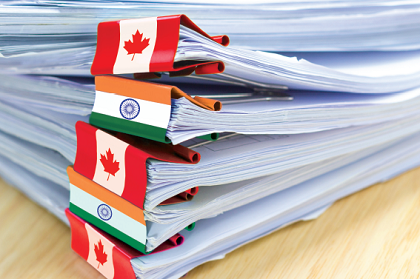 Courtesy: Gateway House & CIGI
Courtesy: Gateway House & CIGI
Canada has been one of the biggest success stories in oil over the past few years. India should consider financial investments in Canadian energy assets as a means to secure its energy supplies.
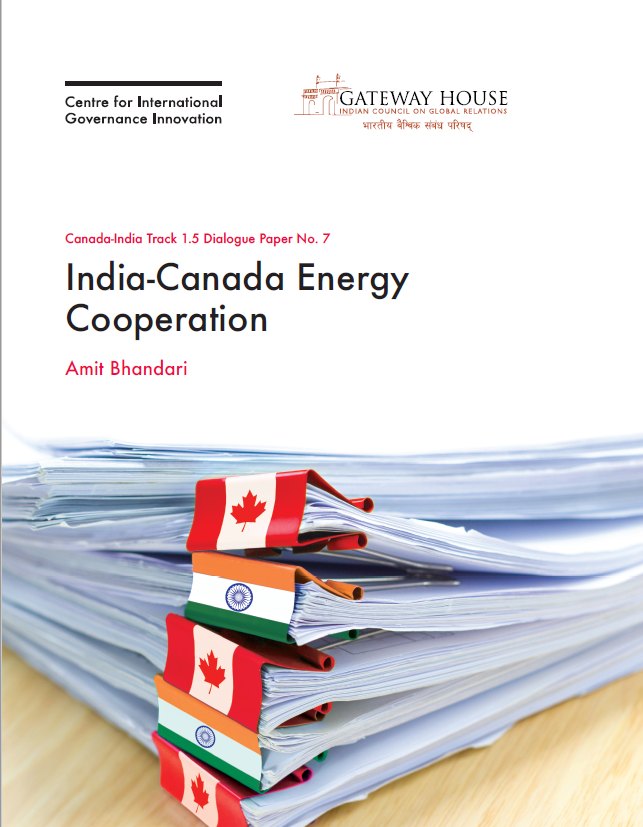 Courtesy: Gateway House & CIGI
Courtesy: Gateway House & CIGI
Canada has been one of the biggest success stories in oil over the past few years. India should consider financial investments in Canadian energy assets as a means to secure its energy supplies. This paper studies the feasibility and prospects for Indian investment in Canada's petroleum sector.
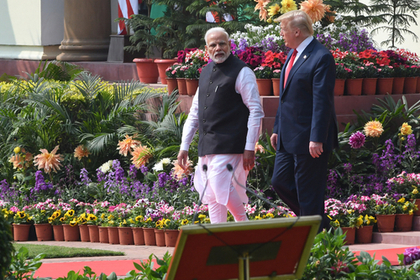 Courtesy: Shutterstock
Courtesy: Shutterstock
President Trump enjoyed every moment of the hype that attended his February 2020 visit to India, says Ambassador Neelam Deo, Director and Co-founder of Gateway House, in this podcast, even as the focus was on concrete outcomes, such as defence purchases and oil procurement deals. She discusses the geopolitical implications of a closer India-U.S. strategic relationship and the weaknesses of the U.S.-Taliban peace deal
Olaf Weber, Senior Fellow, Centre for International Governance Innovation (CIGI), University of Waterloo Research Chair in Sustainable Finance, one of the participants in the India-Canada Track 1.5 Dialogue, on how green finance and economic development are not contradictory any more
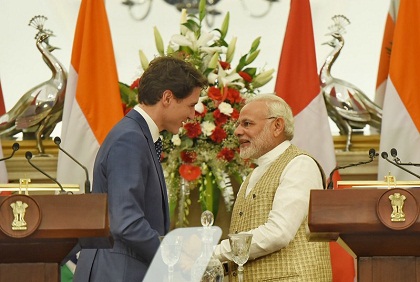 Courtesy: MEA/Flickr
Courtesy: MEA/Flickr
The second edition of the India-Canada Track 1.5 Dialogue, held in Mumbai last month, drew many ideas from experts and government officials on diversifying and deepening the strategic partnership. A summary of some of the outcomes
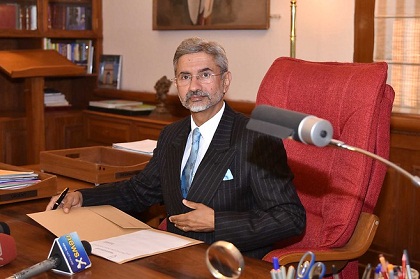 Courtesy: Flickr/MEA
Courtesy: Flickr/MEA
The India-Canada Track 1.5 Dialogue on Innovation, Growth and Prosperity, an initiative agreed upon in February 2018 by the two prime ministers, provides an opportunity for the bilateral relationship to grow through geopolitical convergence, greater economic collaboration and people-to-people interaction. A statement by External Affairs Minister S. Jaishankar for the second edition of the Dialogue, held in Mumbai on 22 November 2019
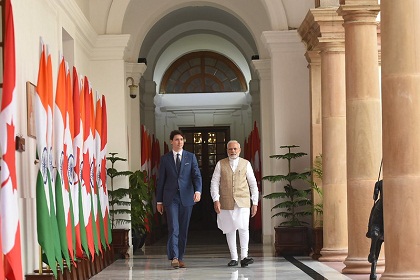 Courtesy: Flickr/MEA
Courtesy: Flickr/MEA
It’s time to start moving on matters in which Canada is a natural ally for India - trade liberalization, energy investments, intellectual property and the rules around e-commerce in particular and big data governance in general.
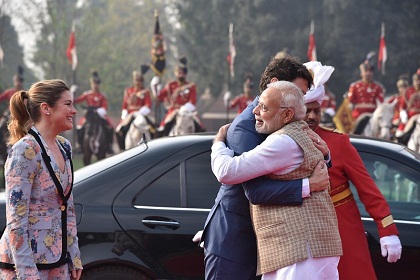 Courtesy: MEA/Flickr
Courtesy: MEA/Flickr
Canada, a middle power, and India, an aspiring middle power, have much to offer each other. The India-Canada Track 1.5 Dialogue, the second edition of which will be held on November 22 in Mumbai, is designed to advance the relationship. Manjeet Kripalani, Executive Director, Gateway House, in conversation with Cleo Paskal, Associate Fellow, Chatham House, who is in the city for the Dialogue and to lead a second initiative, called the Indo-Pacific Engagement
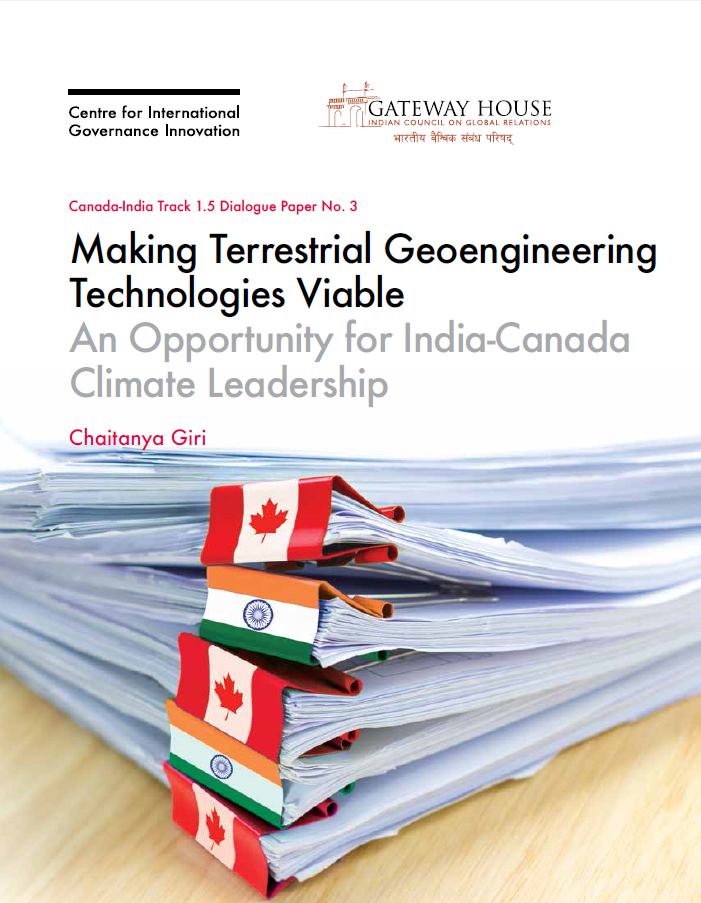 Courtesy: Gateway House & CIGI
Courtesy: Gateway House & CIGI
The use of terrestrial geoengineering techniques, such as carbon capture, is necessary to keep the rise in global temperatures below 1.5 degrees Celsius, as per the Paris Agreement’s targets. Terrestrial geoengineering is different from atmospheric climate engineering: the latter does not remove the very source of the increased greenhouse effect, which are anthropogenic greenhouse gases. India and Canada must collaborate on carbon capture and propose multilateral regulations for unethical atmospheric climate engineering
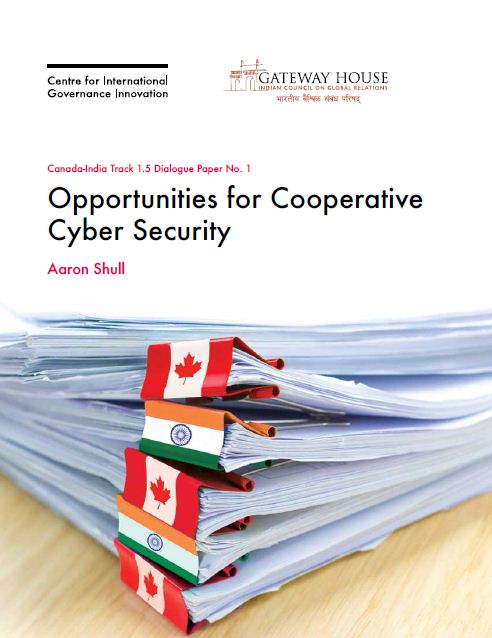 Courtesy: Gateway House & CIGI
Courtesy: Gateway House & CIGI
India and Canada share the same vulnerabilities when it comes to cyber security. They have been victims of suspected Chinese hackers and have mutual concerns about terrorism and election manipulation. This paper makes four recommendations on how the two countries can cooperate to build trust and further their strategic and economic interests